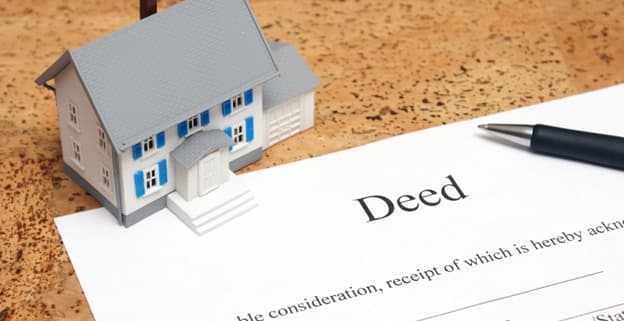Overview
Did you know that Florida is one of only five states (the others being Louisiana, Georgia, Connecticut, and South Carolina) that require witnesses for the notarization and recording of deeds? In common law, a deed is any legal instrument in writing which passes, affirms, or confirms an interest, right, or property and that is signed, attested, delivered, and in some jurisdictions, sealed. While the process may sound simple, it can often become complicated by the many laws that govern deeds. One of the steps that can complicate the transfer process is the requirement for Witness signatures.
What is a Deed?
A deed is a physical document that conveys ownership of a property. You must have a deed after you purchase property. Deeds transfer ownership of real property from a Grantor (seller) to a Grantee (buyer). If you would like to learn more about the various types of Deeds and their uses, check out our previous article: “Clarifying What A Deed Is – Four Types and Uses.”
What is a Signature Witness?
A witness signature shows that a deed is valid and enforceable by confirming that it was signed on an exact date. The signature is also used to demonstrate that the witness was present when the Grantor signed the document. In Florida, Statute §689.01 requires two witnesses for a Deed of Trust, Grant Deed, Warranty Deed, and Quit Claim Deed. Witnesses are important in order to prevent fraud, which can be common when dealing with the transfer of property. Florida requires a witness to appear before a notary and provide proper identification, including a state-issued driver’s license, government ID, etc. In January 2020, the state of Florida enacted laws permitting remote online notary (RON), after the completion of an application and training requirements. Once a signer is selected, they should sign in blue or black ink in the presence of the notary. Florida requires witnesses to property deeds just in case there are problems in the future regarding the legitimacy of the deed. If any dispute concerning the transaction arises, having third parties who were present at the singing is beneficial. Witnesses can be called to testify, though they rarely are, in order to confirm the deed was signed by the Grantor on the date specified.
What are the Requirements to be a Witness?
There are not many laws governing who can and cannot serve as a witness, but there are some general regulations. A signature witness must be an adult (over the age of 18), be of sound mind, not under the influence of drugs, and not be a party to the deed or have any financial interest in it. Outside of these minimal requirements, there is little else governing who can be a witness to a deed. This can leave many people puzzled as to whether a family member, who does not have any financial interest in the deed, can serve as a witness.
Can My Family Member Serve as a Witness?
Unfortunately, due to the lack of laws surrounding signature witnesses there is not one clear, right answer. In short, a family member who does not have any interest in the deed and is not a party to the deed can legally serve as a signature witness. There are no specific laws preventing a family member from serving as a witness; however, the receiving agency can have the discretion to ask for a different witness. While it may be legal to have a family member serve as a witness to a deed, this is not recommended for practical reasons.
Remember, the purpose of a witness is to testify if the deed is ever challenged. If the witness is a close family member, such as a brother or daughter, it is likely that they will be met with disbelief and their neutrality, and thus reliability, will be called into question. While having a family member witness your deed may not invalidate it, it may cause lengthy, costly trouble further down the road if the deed was to be challenged.
Conclusion
While there is technically no law preventing a close family member from serving as a witness to a deed (as long as they have no financial interest in it), it is not practical to do so. The purpose of a witness is to be able to reliably testify to the validity of the deed if it were ever called into question. By having a close family member serve as a witness, their credibility and neutrality will likely be called into question. It is best practice to have a witness who is independent of the proceedings so that they are able to provide unbiased testimony if the deed is ever challenged.
If you have questions about anything discussed here or any of your legal needs, feel free to give us a call at 407-512-4394. You will reach our Waterford Lakes office, which can connect you to any of our other numerous locations. Our attorneys would be happy to answer any questions that you have regarding real estate.
Last Updated on June 22, 2022 by The Orlando Law Group








